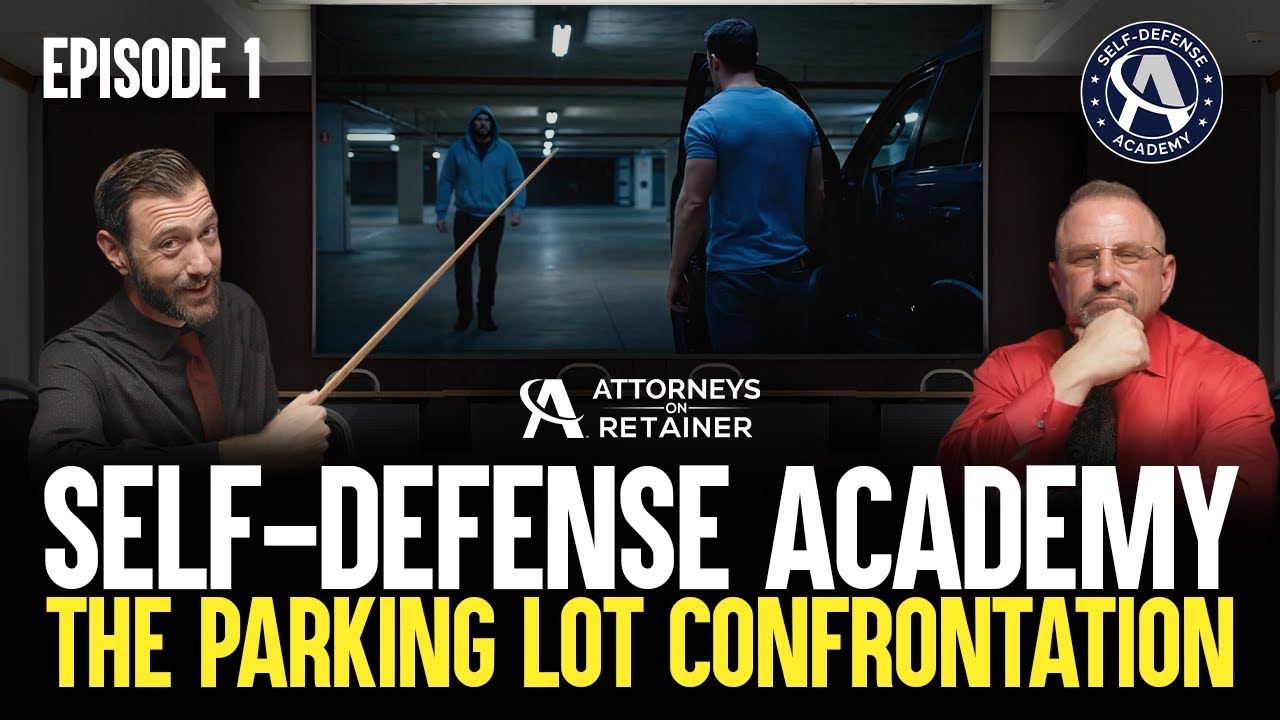A Guide to Self-Defense for Responsible Gun Owners!
Featuring Attorney Rachel Moss
December 10, 2024
Criminal defense attorney Rachel Moss discusses Arizona’s self-defense statutes through a practical scenario. By presenting a hypothetical late-night encounter involving a violent threat, she illustrates the importance of understanding the law before you act.
“Anytime you exercise deadly physical force – anytime you discharge a firearm – no matter if it was a perfect shoot, no matter if you’re perfectly justified in self-defense, there is still that risk that someone is going to misinterpret what happens.”
Arizona’s Self-Defense Law
Arizona law recognizes self-defense as a justification defense. This means that an act that would normally be criminal may be legally excused under specific circumstances. This concept is central to Arizona Revised Statutes §13-404. These statutes allow the use of force when a person believes it is imminent to protect themselves or others from another’s use of force. The law also protects the threat of force, such as drawing a firearm, if it is needed to prevent an imminent threat.
“Self-defense is what’s known as a justification defense under the law… we’re recognizing that there’s certain circumstances where you’d be justified in doing something that would normally be illegal.”
Deadly Physical Force
Attorney Moss emphasizes the difference between ordinary physical force and deadly physical force. The law defines deadly force as any force that is likely to cause death or serious physical injury.
“Deadly physical force cannot be used to protect your property… You can use ordinary physical force to protect your property, but deadly physical force… is not justified under Arizona law.”
This means that while you can physically stop someone from stealing your belongings, you cannot use lethal force unless your life or the life of another is in imminent danger. Proportionality is crucial. Using deadly force to prevent a minor or non-violent offense may lead to criminal charges, even if you believed your actions were justified in the moment.
Stand Your Ground
Arizona is a “stand your ground” state, meaning there is no legal obligation to retreat before using force. This contrasts with “duty to retreat” jurisdictions where individuals must attempt to escape danger before using force. However, this doesn’t mean that every act of force will be automatically excused. Reasonableness, imminence, and proportionality still govern whether the use of force was legally justified. Being in a “stand your ground” state simply means that you don’t lose your right to self-defense by failing to flee.
“If you’re here in Arizona, you can always keep in mind that you have no duty to retreat… you are able to stand your ground and use force and act in self-defense in that situation.”
Crime Prevention
In addition to defending yourself or others, Arizona law also permits the use of force to prevent the commission of certain serious crimes. Under A.R.S. §13-411, a person may use deadly force if it’s imminent to stop crimes such as murder, sexual assault, arson, or armed robbery. Attorney Moss emphasizes a key distinction – in self-defense, the danger must be imminent and personal. In crime prevention, the focus is on stopping certain felonies before they occur, based on a reasonable belief that the crime is about to happen.
“The defense that you would be proving is that you were trying to prevent a crime… You don’t have to wait for the moment that someone actually starts to attack to exercise self-defense”
Preparation is Key
Attorney Moss emphasizes the need to think critically and realistically before you ever have to defend yourself. Training and scenario planning aren’t just for the range. Mental preparedness plays a huge role in how you will respond during and after a confrontation.
“You don’t want to be thinking about these things for the very first time when you’re in that stressful situation… You kind of want to think about these things ahead of time.”
Attorney Moss recommends running through four core scenarios: protecting your own life, protecting someone else, responding to a non-lethal threat, and responding to verbal provocation. Each scenario carries different risks and legal implications. Knowing where you personally draw the line is essential.
Say Less When the Police Arrive
Attorney Moss emphasizes that, after a self-defense incident, call 911 and only say what’s necessary to get emergency help. Even well-meaning or seemingly harmless statements like “I was in fear for my life” can be misinterpreted, misquoted, or used against you in court.
“The two most important pieces of advice that almost apply in every situation following the shooting is: don’t get shot, and just shut up.”
Conclusion
Understanding Arizona’s laws on self-defense is essential. Even the most well-intentioned use of force can be scrutinized by prosecutors and juries.
“There’s always that possibility you could get a jury where people don’t know much about guns and the attorneys really have to teach the jury a lot about guns and the situations they might have to use self-defense in.”
That’s why legal education and planning are so vital. The Attorneys On Retainer Program exists to give members peace of mind. If you would like to know more about our law firm and how our self-defense protection program AOR can help you, please call 866-404-5112 or email us.



